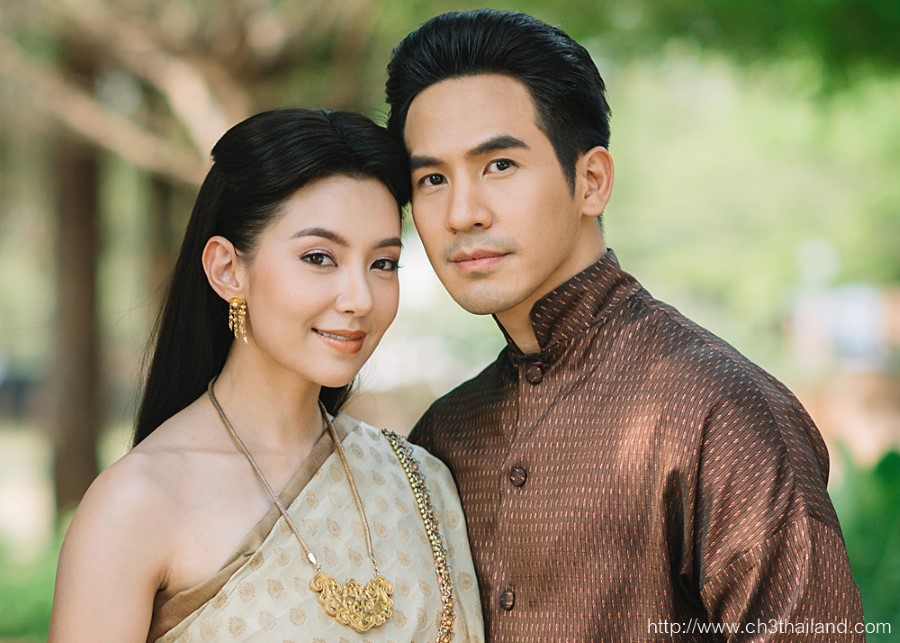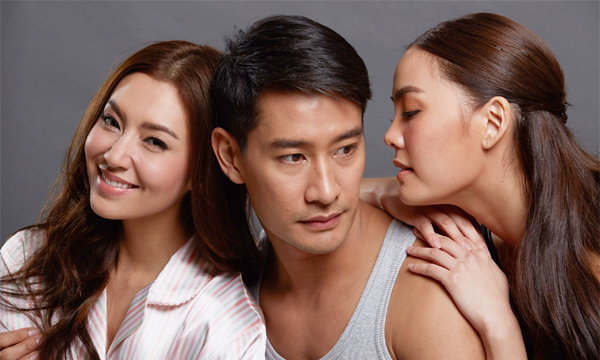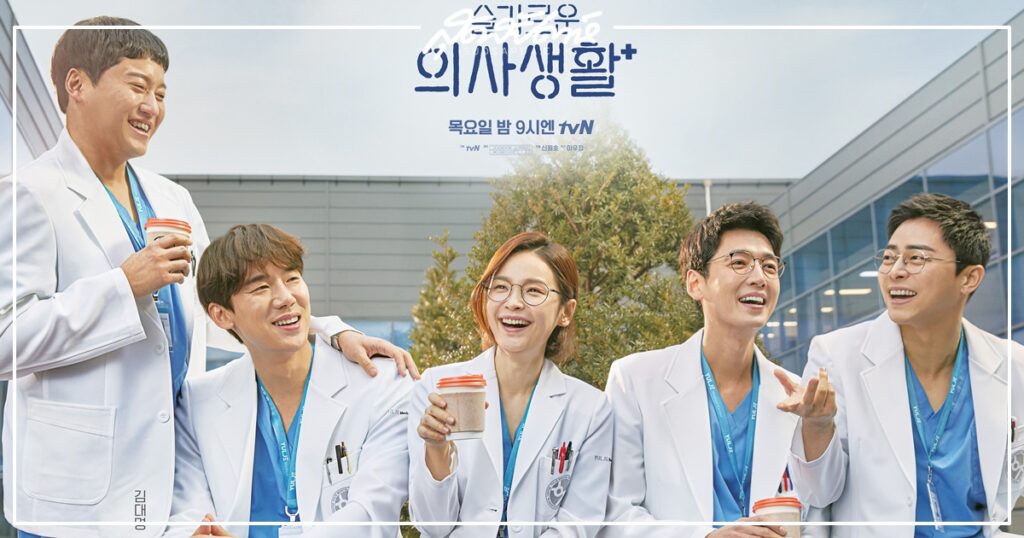In modern days, people from all over the world start to create their own shows or movies without waiting for big production firms like Hollywood to make everything happen. A lot of these films or dramas happened to be big hits that became popular internationally. The Japanese with their films and anime, the Korean with their K-Dramas, or the Spanish with many telenovelas that got popularized on Netflix. Literally, everyone and their friends are making their own films. Thai people do this as well. Throughout the years, we’ve produced countless films and TV dramas, but we seldom see (if at all) our shows receive the limelight on global stages. There is a whole bible worth of reasons why that is the case, and the newer generations of Thai people not preferring our own show is one of them. But why, though? Well, here are 5 reasons why the newer generations could not care less about Thai dramas.

THIS PLOT AGAIN???
Hey! You wanna try some Thai dramas? Try this show called “Tavipob.” It’s a time-traveling romance-drama series. Or try “Jaogum Naiwaen.” It’s a time-traveling romance-drama series. Oh, you don’t think that’s for you? Try “Love Destiny.” It’s a time-traveling romance-drama series. Can you see where this is going? The repetition. Is. Insane. So many of our romantic dramas are following the same pattern over and over again for more than 30 years! Most of the time, the plot’s simply a couple of women fighting over a man, with an antagonist with absolutely zero depth that got rich from some certain business which isn’t mentioned during the entire series. The Matter team did some statistics on Channel 3, showing that they produce only two main genres of shows and those are drama and romance, 76.2% of which ended with the main characters living together happily ever after. As for the villains? Their endings are a little more diverse with some dead, some going mad, some arrested, becoming a monk, or just turning better as a person.
As we were digging to see the reasons behind this blandness, we found some candidates of reasons to explain these reusing of plots. Funding could be one of the main problems in the Thai drama industry. In Korea, their government sees those K-series as their asset to build up soft power for the nation, so they fund the production of many series. But in Thailand, there isn’t any notable support from the government. The shows are mostly free-to-watch since they’re going to be launched on cable so they solely rely on their advertisers and producers, meaning they get to decide what to air and what not to. The big shots control a year’s worth of shows (30 – 40 of them), and the production crews just have to make them happen. Meaning the creativity of the writer is almost obsolete since new plots equal new risks that the channel has to bear. So the bottom line is the fact that they’re not trying to make shows to please their audiences but to play safe and please the ones paying them instead. We’ve been reminded plenty of times about the power of media ownership, and this is no different. The plot can’t really be that diverse if Thai media producers still create shows not to express our creativity, but to please the ancient norms that are ridiculously outdated, out-created, and out-performed by the other countries’ alternatives.

Zero Character Development
If you imagine yourself ten years ago and yourself right now, there is a big change in your personality and behaviors. In contrast, Thai characters rarely have any development from the beginning till the end of the story. Characters in some Thai dramas have little to no complexity and development throughout the story. Some characters are too predictable and their intentions are obvious. For instance, the female villain in Thai dramas will desire a male protagonist for herself and do everything to get him to like her. The antagonists are represented as a character that has a sexy appearance, wears fashionable clothes and make-up, and acts blunt. Their presence in the show is only used as an obstacle for the main character; they are shown as having no deeper purpose or storyline of their own. However, in reality, people with these appearances do not necessarily have evil traits. These repetitive evil characters not only show that the producers did not do enough research for character building, but also create stereotypes towards people with similar appearances as the villain. Many of the actresses performing as antagonists are often cast for the same role again and again for the reason that they have “the look”. As there is no complexity of the different characters, newer generations might see Thai dramas as lacking creativity.
Inaccurate Representation
Even though Thai producers have been creating series with LGBTQ+ as the main characters, Thai series are far from producing accurate representations. Traditional mainstream media still present gays as funny characters and they have no other purpose than to fulfill the plot and support the straight main character. Not only that but these characters will usually make sexual harassment jokes and curse with a certain attitude. Furthermore, the Thai sitcom like Pen Tor reinforces the stereotypes of transgender women as having high sexual needs, and male characters are portrayed as openly homophobic. This situation in the series was depicted as normal; those men keep getting away with being homophobic and there is no justice for the transgender women. These inaccurate representations of the LGBTQ+ community can lead to misunderstanding and discrimination.

It is true that Thai’s boy love series is a growing market, but does the series accurately represent the LGBTQ+ community, or does it portray a false perception of the community? In Thai’s boy love series or as known as Y-series, the two attractive main leads will usually represent either feminine or masculine traits; one of them will be more masculine and the other will act more feminine. However, it is not always the case in real life. The gender expression or/and gender identity can be fluid; the LGBTQ+ community is more diverse than what was represented in the series. Moreover, representations of other genders in the LGBTQ+ community rarely exist on screen.
As we are in 2022, newer generations are likely to be informed about gender diversity so they would not prefer to consume these inaccurate representations that reinforce the stereotypes towards people in the LGBTQ+ community.
Sexism is Prevalent, Especially Towards Women
The Thai media entertainment industry, like other countries, is dominated by men. Therefore, unsurprisingly, Thai dramas are often shaped by the patriarchal views in Thai society. Instead of being an audience, young people would rather criticize and choose not to consume these dramas because they are likely to become advocates for gender equality and informed about political correctness. Likewise, they would be sick of seeing women being mistreated and underrepresented in dramas.

To begin with, it should be acknowledged that the objectification of women and glorification of violence have been prevalent in Thai dramas since forever. Dating back to the drama that had one of the highest ratings in 2008, Chamloei Rak. It tells a story about a male protagonist that wanted revenge on the woman that caused the death of his brother so he kidnapped her, however, it was not the right person and they ended up falling in love. Yes, you read it right! The protagonist is a kidnapper, but he gets a happily-ever-after because the female lead easily sympathizes with him. This phenomenon could be explained through Stockholm syndrome which is an emotional response where the victim has positive feelings for the abuser.

You might have thought that, well, it was 12 years ago, but the Thai industry could have improved by now. Unfortunately, it did not. Violence against women was repeatedly depicted in Thai drama. In 2021, there was a scene in a drama called Mia Jum Pen where the female protagonist was kidnapped and raped. Then, the male lead expressed disgust towards her. As a consequence, the depiction of rape and victim-blaming have led to trending Twitter discussions to ban the drama and call for the entertainment industry to stop producing these repetitive content. The audience surely is unhappy.

Other than romanticizing abusive relationships, Thai dramas are reinforcing the stereotypes of gender roles. “If I don’t have an inadequate wife like you, I would not think about cheating.” A quote from the 2017 famous drama named Pleung Boon. This statement was made by the male lead when his wife does not conform to gender norms. Not only that the argument is unsound, the male protagonist even has the audacity to justify his bad behaviors and blame them on his wife. The drama presents the idea of a “good” wife as submissive and obedient which suggests that men are more dominant and powerful. Unfortunately, this drama received a prize from TV Gold Awards for the best screenplay; this shows that it is a long journey for Thai drama to improve. Moreover, in a very popular show of 2020, Deceitful Love, the mother of the male protagonist blames the woman for getting pregnant and called her stupid for not using protection while neglecting that the man is also at fault. In addition, the show depicts the dramatic fight between the wife and mistress while the man is portrayed as non-guilty and unbothered. Men, who are usually the abuser in the relationship in Thai drama, are not responsible for their actions at all, but women, who are usually the victim of abuse, are condemned and at the end she needs to forgive the men. This is what is usually shown in countless Thai dramas. If Thai producers keep reinforcing these sexist beliefs, newer generations would not even bother to check out new dramas from their companies.

There are higher quality options on various platforms.
The era of the internet allows audiences to choose their own media platforms so there is a big competition for Thai drama. If the industry is repeating the same content and being insensitive to what people want, people will get bored and move on to something better. For example, many Thais chose to watch K-series instead because the storyline is well-developed, the character development has depth and complexity, and the cinematography is beautifully made. If you take a look at what is trending on Netflix’s “Top 10 in Thailand”, you will come across several Korean dramas. Additionally, the trending K-drama has different themes providing variety unlike Thai drama which produces mainly romantic-drama genres with similar plots and characters. Often, K-drama takes us to explore different occupations: journalist in Pinocchio (2014), prosecutor in While you were sleeping (2017), forensic pathologist in Partners for Justice (2018), writer in Romance is a bonus book (2019), director of Internet’s web portal in Search:WWW (2019), doctor in Hospital Playlist (2020), and weather forecaster in Forecasting love and Weather (2022). These are only a small part of what Korea produces, the entertainment industry is super active in Korea.
So… Is there any future for Thai Dramas?
Even though we’ve only brought up the bad side of Thai Dramas, it was just to make our point. Look, credits where credit’s due. There are many Thai series or films that received many praises from our communities like In Family We Trust (2018), or the recent movie One For The Road (2022). Those shows represent so much depth of characters, plots, and ideas that are unbelievably interesting to watch, and we sure did enjoy them. In fact, One For The Road did beat Hollywood’s Uncharted for tickets sold in Thailand on initial release. This made it obvious that we are capable of creating quality media as well. If we can keep the standards high, the youth would be as supportive of the Thai series as they would be for K-dramas, and we’re ecstatic for that future!


